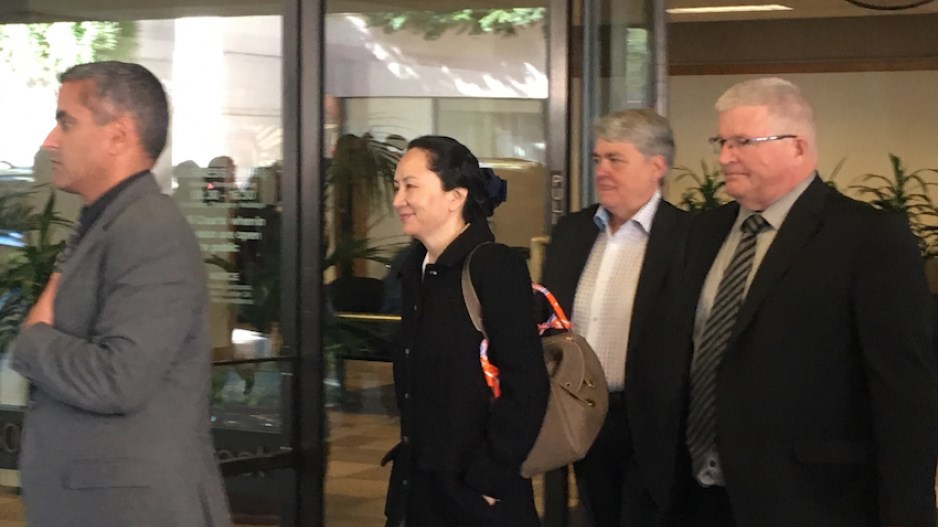Day 4 of the extradition hearing for Huawei Technologies Co. Ltd. CFO Meng Wanzhou sees defence lawyers go back on the offensive, responding to Crown claims that the case is an actionable case of fraud had it occurred in Canada.
That was the main point made by the Crown on Day 3, arguing that Huawei’s misrepresentation to HSBC about the nature of its relationship with Skycom – which was doing business in Iran – causes the bank to possibly sustain reputational risk. The Crown also argued that foreign laws should be considered in the case, lest Canada become a safe haven for telemarketing criminals as it only considers cases completely within its jurisdiction.
The fourth day of the hearing, defence lawyer Scott Fenton began by noting records of the court from the U.S. on the Huawei case being “silent” on reputational risk, adding that all the risks listed by American authorities on the fraud charge stem from regulatory matters (i.e. the sanctions on Iran).
If the sanction risk is taken out, the criteria for fraud in Canada – a risk of economic loss to the victim – does not exist, Fenton said.
“No possibility of loss means no loss at all,” he said.
In addition, defence lawyer Richard Peck reiterated that - in the defence's view - importing sanction laws that Canada has made the active choice of rejecting is problematic. He noted while some foreign laws should be considered for extradition, this shouldn't be one of those cases.
"From 2011 to 2016, a comparative legal obligation existed because we [Canada] had the same sanctions law," Peck said. "Then, things changed... and when the U.S. issued new sanctions on Iran, Canada chose not to follow through, along with the rest of the civilized world. We made a deliberate decision on this policy."
Peck concluded his arguments that the Meng case is unique because its risk of economic deprivation for the victim (HSBC) is based solely on U.S. sanctions, something that Canada "has roundly rejected."
"It's unique because of our repudiation of the exact law on which the case stands," he said. "This is the type of case that tests our system. It's a difficult case... but we say that right needs to be done."
Judge Heather Holmes has decided to reserve judgement on the topic of double criminality, meaning the hearing will now continue only other applications by the Meng team - like abuse of process discussions - later this year.




